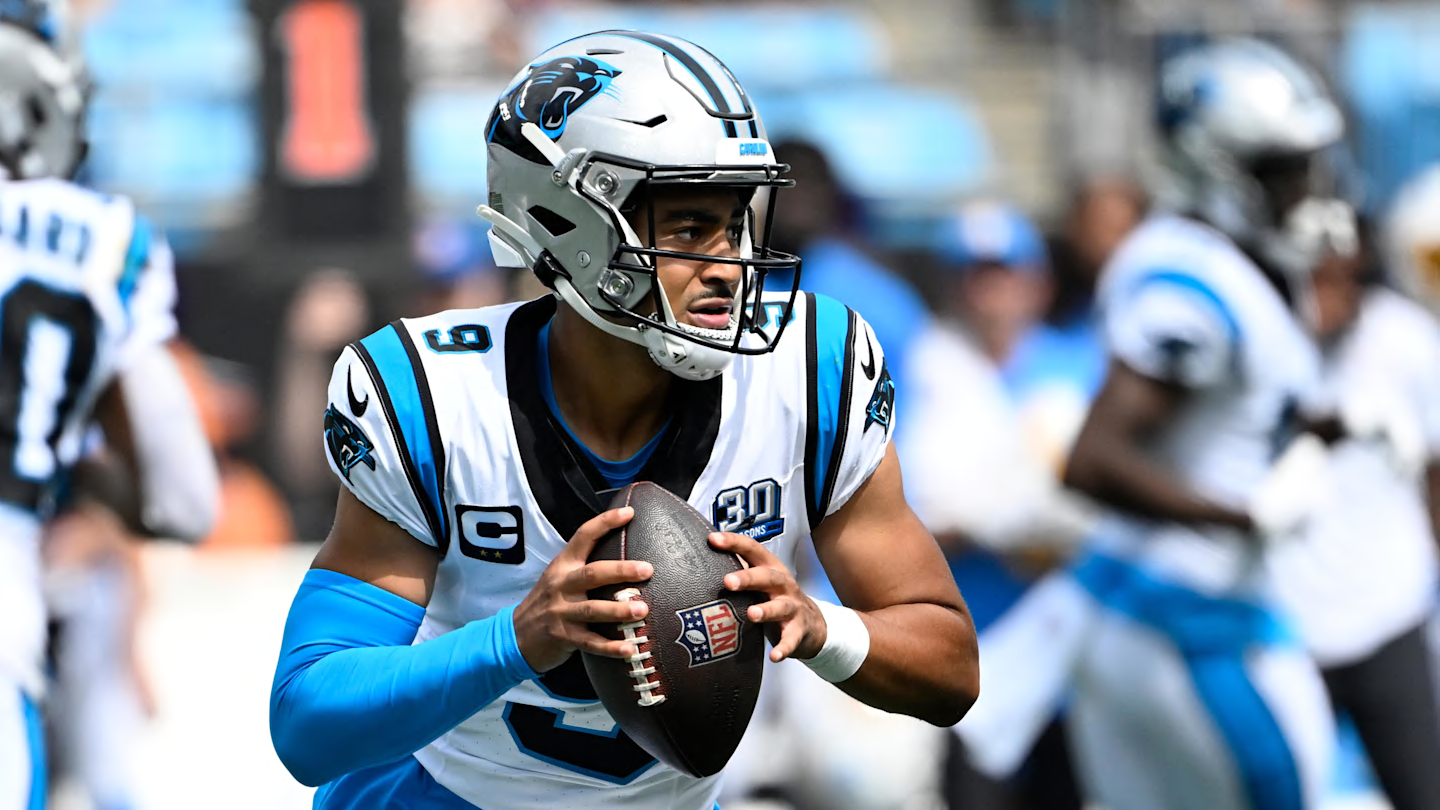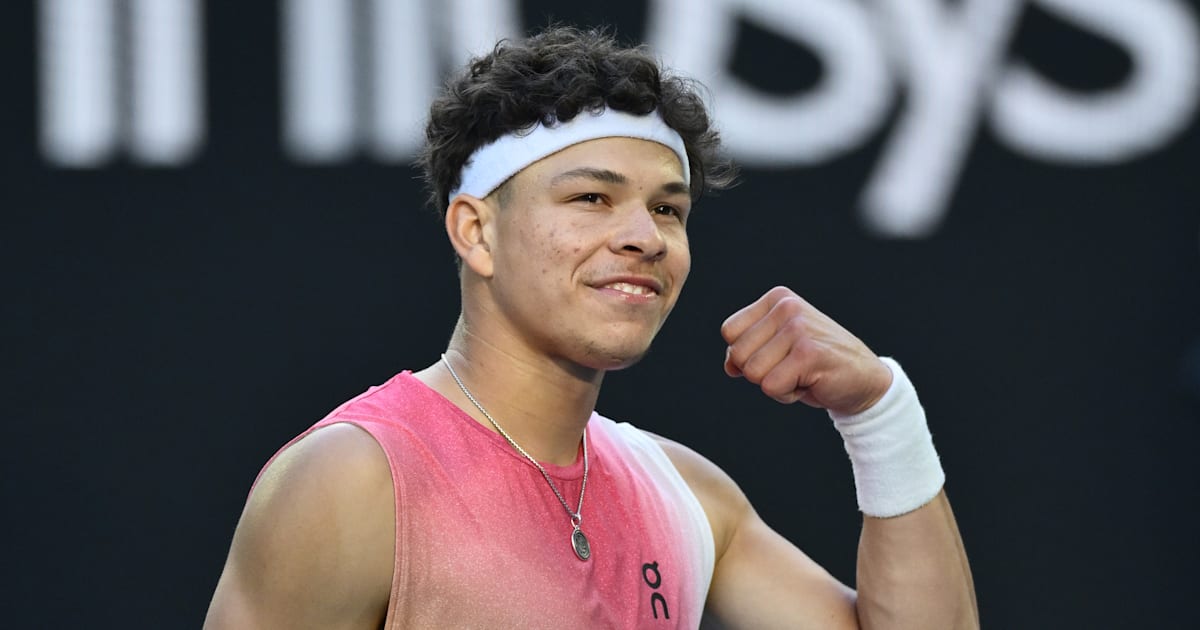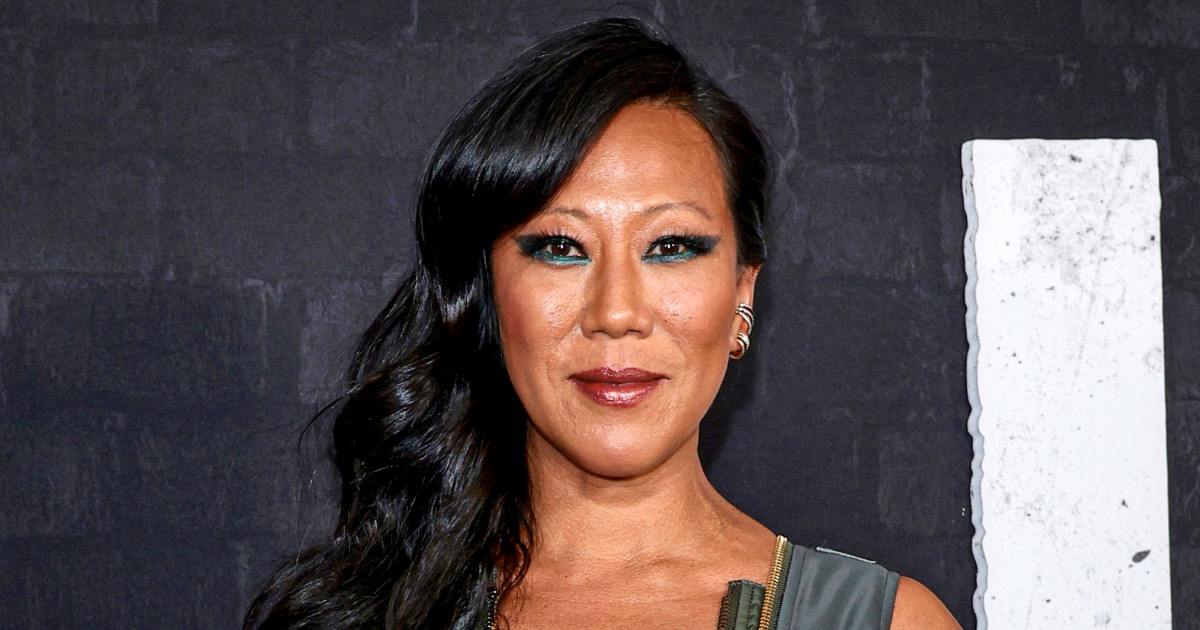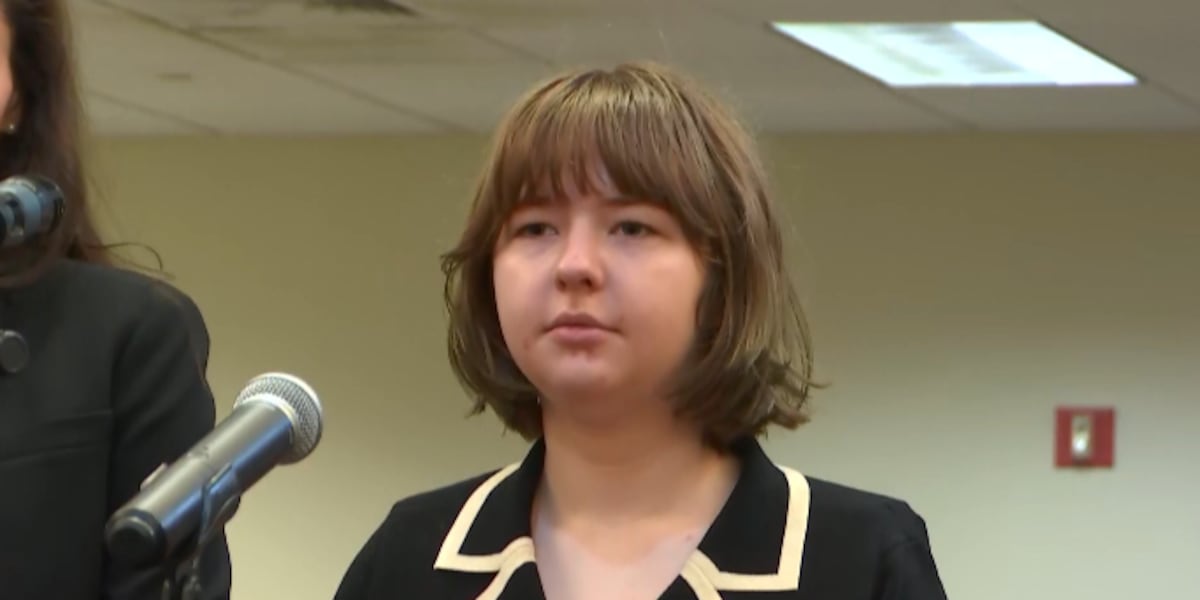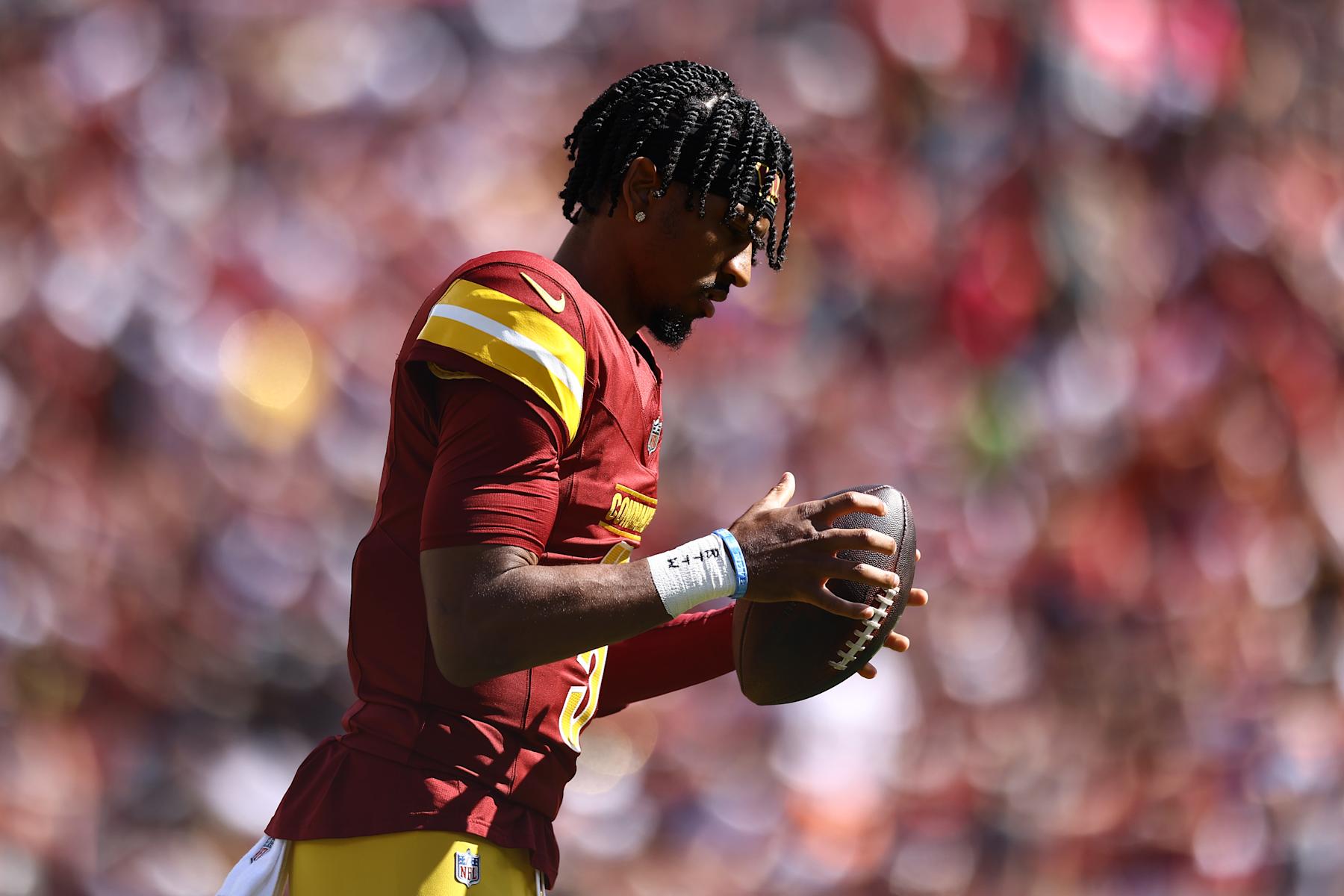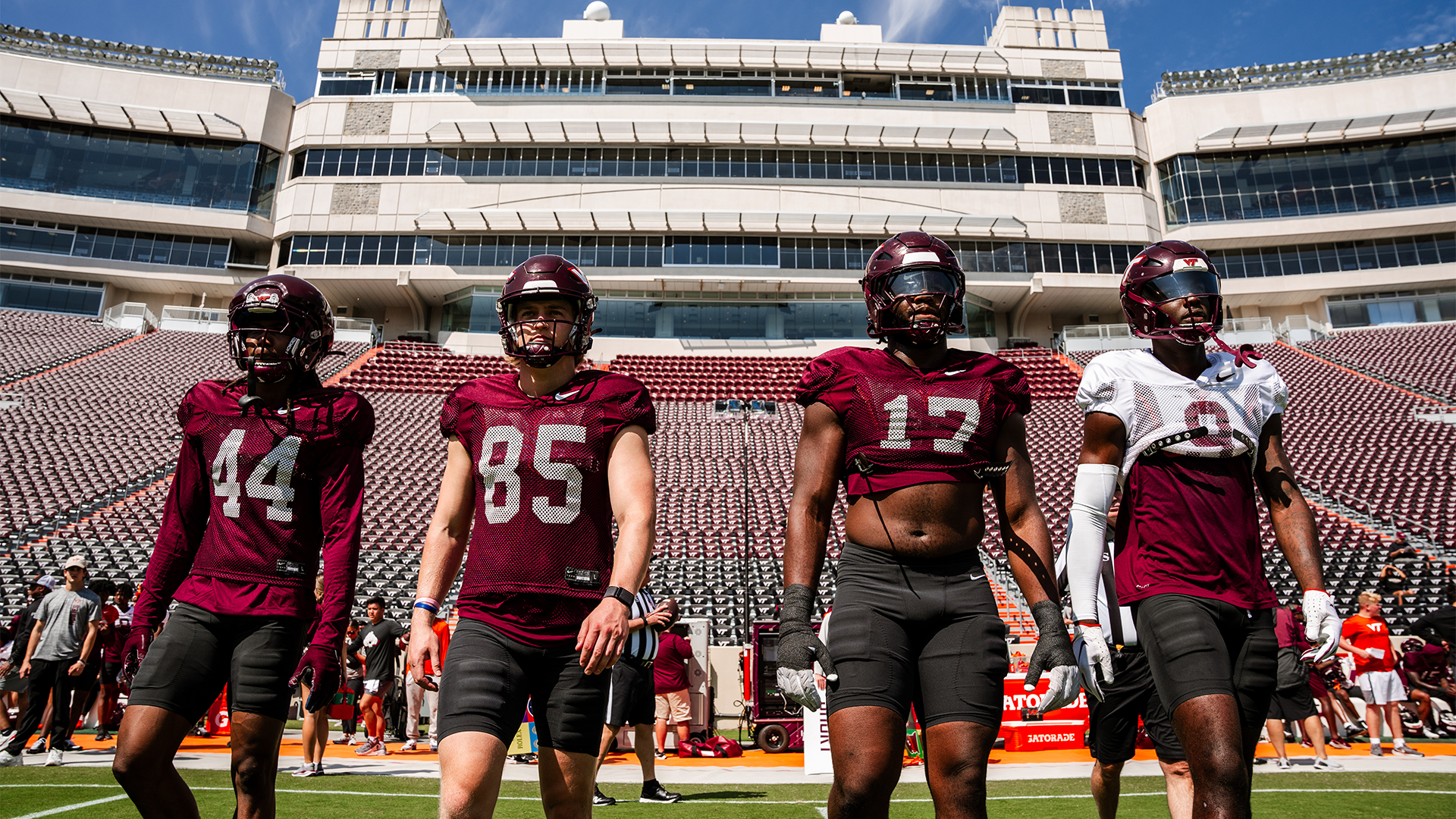We’re off to a fast start in Week 3 after Monday night’s thriller between the Atlanta Falcons and Philadelphia Eagles. So it’s time for the Tuesday notes. Let’s roll …
• The Carolina Panthers’ race to the bottom continued Monday with the benching of 2023 No. 1 pick Bryce Young, mere hours after the quarterback taken a spot behind him, C.J. Stroud, lit up the Sunday night stage in leading the Houston Texans to a 19–13 win over the Chicago Bears.
Make no mistake, benching a player in which you made that type of investment this early in his career is a decision that will be reverberate, and could not have been made rashly.
So what was it? After talking to the Los Angeles Chargers’ staff about game-planning, and working against Young on Sunday, I got a little window into how Carolina got here. The Chargers staff saw a quarterback who’d stopped looking downfield, struggled to see the field from the pocket, and kept dropping his eyes and looking at the rush—the sign of a player who’s taken too many hits and doesn’t want to take any more.
He looked better when Carolina’s coaches moved the pocket and got him out on the edge, but there were only three such calls Sunday. And, clearly, as the Chargers challenged Young in this area, and as their advance scouting proved true, Young’s receivers grew frustrated.
The result was a mere 54 yards and two first downs in the first half, and a 20–0 deficit going into the third quarter. Things were only marginally better after halftime, when the Chargers took their foot off the gas a bit. It also followed a first half in New Orleans in Week 1 in which the Panthers managed just 74 yards and five first downs, and fell behind 30–3. For the season, in the first half of games, they’re averaging 2.98 yards per offensive snap.
Now, imagine you’re Dave Canales. Veteran players in any locker room, not just Carolina’s, are generally uninterested in your three-year plan. They want to know what’s going to help them win, achieve individual success and, ultimately, get paid. If you keep playing a guy who’s keeping that from happening, it can be a problem. And that’s where it might be tough, given the anemic production and obvious problems, to sell Young to the locker room.
On a weekend in which Sam Darnold, Baker Mayfield and Geno Smith starred, it’d be ridiculous to start writing a quarterback’s epitaph this early in his career. But Young’s clearly in a bad place right now. Maybe the best thing for him personally is to be removed from it, and the Panthers think it’s the best thing for their team as well.
• Speaking of Darnold, I had a really good discussion on his progress with Kevin O’Connell on Sunday night. Through that talk, we wound up getting to two situations that the quarterback conquered in the Vikings’ upset win over the San Francisco 49ers. Both plays showed how far he’s come, and how much command he has of the offense, so I figured we’d share each of them here.
The first would be Darnold’s 97-yard bomb to Justin Jefferson. In emphasizing that the 27-year-old still has the talent that made him the third pick in the draft, O’Connell called it a “really special throw.” So I asked him what was so special about it.
“The moment, backed up like that,” he says. “We got the look we wanted for the play. The way it played out, he really had both of them—he had Speedy [Jalen Nailor] as the underneath element, and then he had Jets [Jefferson’s nickname] over the top. In that moment, we got great protection. He stepped up, and he just threw an absolute dime. I think it traveled about 55 [yards] in the air, in stride. Just a special play in a special moment of the game. …
“That’s not only the confidence I have in Sam to call that play, but it’s the confidence to get great execution of a designer-style play, then get great protection. Those guys are rolling off, they understand there’s two points if they can get in the backfield and get him on the ground, try to force a frantic play out of us. We got him blocked up, and Sam threw an absolute dime. It’ll be a throw and a play call I’ll remember for a long time.”
The second play came on the 14-play, 62-yard drive Darnold engineered in the fourth quarter. The Vikings got the ball on their own 30 with 10:16 left. The Niners, perhaps the best team in football, had just punched it in to cap a 99-yard drive to cut Minnesota’s lead to 20–14. Momentum had shifted, and the avalanche sure felt like it was coming.
Darnold responded by converting three consecutive third downs—with the middle one coming on another absolute dot of a throw, between three defenders, back-shoulder, and down the seam to Nailor to convert a third-and-8. We described it in the Week 2 takeaways, and how it happened without Jefferson, Jordan Addison or T.J. Hockenson out there, and as O’Connell and I talked about it, the coach says, “He just played that drive with me.
“The way things are set up, I really want to make sure Sam understands play intent, why we have plays in the plan, depending on what we’re asking him to do with his feet and his eyes and just trust in that, make good decisions and be aggressive with his arm,” O’Connell says. “I firmly believe that he’s got the arm talent to make some special throws. It’s really our jobs and the other 10 guys in the huddle’s jobs to make sure we’re all doing our part to make sure Sam can go play quarterback.
“I’m just really proud of him. It’s been a lot of work for him.”
That work sure is paying off and, as a result, the Vikings have come out of the post–Kirk Cousins era with a pretty viable starting quarterback, and a top-10 pick (J.J. McCarthy) on the mend.
• To me, the Atlanta Falcons’ win Monday night, to a degree, validates their roster management at quarterback in the spring.
Kirk Cousins smoothly drove the Falcons 70 yards in six plays to give them a 22–21 lead. He didn’t face a single third down. He didn’t even need the full 1:39 after a touchback on the kickoff. And it was on the heels of a handful of other critical plays he made in the game—one being a fourth-and-4 conversion near midfield that set up a 41-yard scoring strike to Darnell Mooney that gave Atlanta a 15–10 lead going into the fourth quarter.
All of this gave Raheem Morris his first win as Atlanta’s coach in a prime-time game against an established NFC power. So the Falcons, very clearly, have a quarterback who’s going to help maximize young players such as Drake London (six catches, 54 yards, game-winning TD) and Bijan Robinson (122 scrimmage yards on 18 touches), while giving Michael Penix Jr. time to acclimate to the NFL.
Here was the Falcons’ bet: Cousins was going to play well, Atlanta was going to contend, and finding a succession plan from the 36-year-old would be difficult as a result in a year or two, without a high pick to use on one. So they made the tough call to take a quarterback they really liked at No. 8 in the draft—some on the Rams-centric staff compared Penix to how Matthew Stafford throws a ball—over someone who could help them right now.
Which … if the Falcons win, and Penix develops, probably will wind up looking really smart.
• When I had Harrison Butker on the phone Sunday night for my Week 2 takeaways, I felt like I had to ask about the Kansas City Chiefs’ offseason. But I didn’t want to dive too deep into the thorny debate over the contents of what he said in the college commencement address he delivered in May.
Since we were talking about how the Chiefs just seem to know how to win, I wanted to ask about how his teammates had his back, and how that helped fuel the success Kansas City has had. Butker is one of the longest-tenured Chiefs, having joined the team a few months after Patrick Mahomes, in September 2017.
“Patrick talks about this all the time, and Coach [Andy] Reid, this is a beautiful thing about a football locker room,” Butker says. “You have a bunch of guys with different beliefs, things that they’re wired differently on. They come from different backgrounds. And, yet, when you’re teammates with guys and you’ve been grinding through training camp and pressure moments during the season, the No. 1 thing we’re trying to do together is win and they understand the sacrifices that are being made for the benefit of the team.
“And I think it’s a beautiful thing that we can have our differences and we can still come together. And I think if we could have more people approach their daily interactions like football players do in an NFL locker room, I think the world would be a much better place.”
• New York Jets rookie Braelon Allen became the youngest player to score a touchdown from scrimmage in 94 years Sunday—at 20 years and 239 days old, he’s actually the exact same age Arnie Herber was when he scored his first for the Packers in 1930, per the Associated Press.
This sort of thing isn’t new for Allen. He graduated from high school a year early, after reclassifying, which meant he played his entire freshman year at Wisconsin at 17 years old (his birthday is Jan. 20, 2004). And at 17 years old, he rushed for 1,268 yards and 12 touchdowns. But having done it before doesn’t mean any of it is getting old for the NFL’s youngest player.
“It’s definitely really cool,” he said over the phone Sunday. “I had a similar experience in college, being the youngest guy in FBS that year and doing a lot. It’s something that I wanted to carry into the league, and get here as young as possible. The goal wasn’t to be the youngest to ever do it, but it’s pretty fun. It’s cool. Hopefully, I can just keep building.”
Fun fact: When Allen was born, Aaron Rodgers was preparing for spring ball and his junior year at Cal. A year later, the Packers took Rodgers with the 24th pick. I’m not sure which Wisconsin day care Allen was enrolled in at the time.
• Rookie tight ends generally struggle to produce out of the gate. Only two have hit 1,000 yards: Mike Ditka in 1961 and Kyle Pitts in 2021. Only six have gotten to 800 yards, and only eight have made it to 700. And only six rookie tight ends have gotten to 60 catches, with two of them (Sam LaPorta and Dalton Kincaid) coming last year.
There are a lot of reasons for this. The biggest one is the position’s involvement in both the run and pass game. There’s a lot to learn before a young guy earns the right to be out there on an every-down basis.
So look out for Brock Bowers. Through two weeks, the Las Vegas Raiders’ rookie already has 15 catches for 156 yards. That projects to a mind-bending 128 catches for 1,326 yards, which would give Bowers the greatest statistical line a rookie tight end has ever had by a healthy margin. It would also illustrate why GM Tom Telesco and coach Antonio Pierce took Bowers with the 13th pick, even if conventional wisdom says not to take a tight end that high.
Simply put, the new Raiders brass looked at the roster and saw too few blue-chip players. So their logic was Bowers gave them the best chance, and safest play, to add one to the roster, from where they were picking. Based on the first two weeks—and, yes, it’s still early—Bowers might already be showing himself to be one.
• The injury to Deebo Samuel, and the safe play to put Christian McCaffrey on injured reserve, shows why the 49ers never really wanted to say goodbye to Brandon Aiyuk.
San Francisco is 1–1. McCaffrey is on IR, and out at least another three weeks. Samuel will miss a couple of weeks. Trent Williams is still getting his feet back underneath him. All of these situations can be managed, for sure. No one believes the Niners are suddenly going to miss the playoffs. That said, taking a couple of losses because of all this could wind up changing the site of a playoff game. It could mean going to Philadelphia or Green Bay in January.
This is the world the Niners are in. Every game counts. So, yes, they have the leeway to play it safe with McCaffrey to try to make sure he’s at full speed approaching the finish line in January and February. The flip side of that is you still want to have enough to win games now, so you have the right situation for a full-speed McCaffrey to be running come winter.
That’s why having this surplus of talent matters. It gives you another layer of protection, so you can maintain that standard as you manage injuries. And looking at things as they stand now, it’s fair to say Aiyuk’s suddenly a pretty valuable piece to have.
• J.K. Dobbins through two games: 27 carries, 266 yards, two TDs. Given what he’s dealt with from an injury standpoint, the former Baltimore Raven is a great story. It’s fun to mirror his with Hall of Famer Frank Gore, since Gore (who had a million injuries in college and early on as a pro) was once the engine for a Jim Harbaugh run game. And I’d say Dobbins—who torched Harbaugh when Harbaugh was Michigan’s coach and Dobbins was at Ohio State, and then played for Harbaugh’s brother in Baltimore—is a really good fit to be just that.
• There was a lot of talk about Ryan Tannehill coming in as a short-term solution in Green Bay and Miami the past couple of weeks. I’d just say that it would surprise me if he arrived as some sort of Band-Aid for a team. My guess is he’s waiting for the sort of situation Joe Flacco got last year in Cleveland, where he’d be coming in not just to start for a couple of weeks, but to play out the season.
• Worth keeping an eye on this week: Where the NFL stands on the hip-drop tackle that Houston Texans running back Joe Mixon was hurt on Sunday night. Houston coach DeMeco Ryans said, after watching the film, it was clear to him that the hit from Browns LB T.J. Edwards was a hip-drop tackle, which the NFL banned this offseason. The league has said it would be judicious in flagging it early as players adjust to the rule.
Here’s Mixon’s take on it, from Twitter/X: “The NFL and NFLPA made it a rule and an emphasis for a reason. Time to put your money where your mouth is.”


